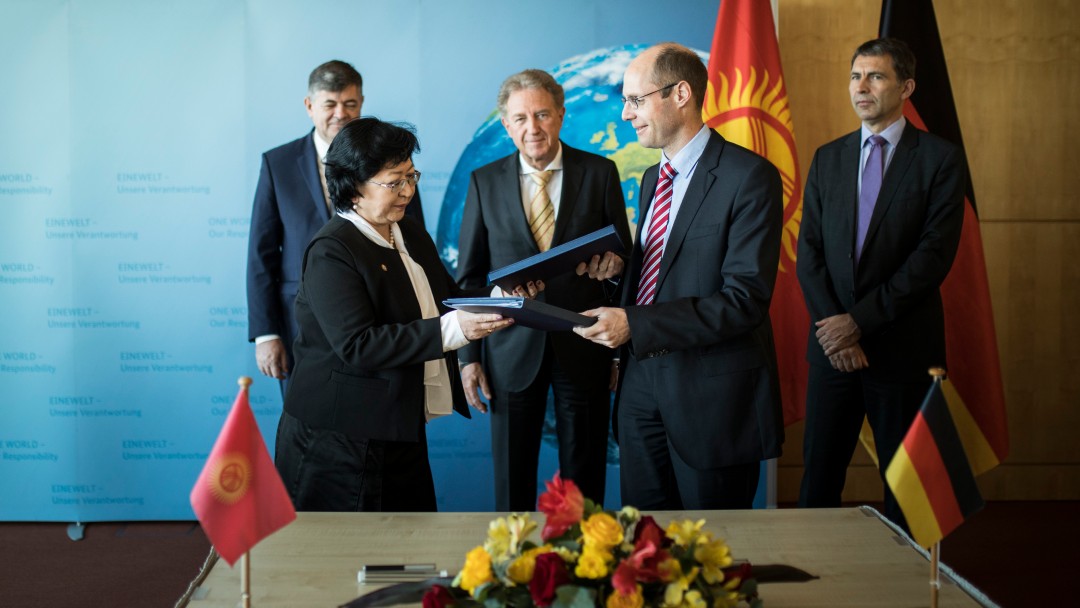News from 2019-04-18 / KfW Development Bank
KfW promotes healthcare for mothers and children in Kyrgyz Republic

On 16 April, three agreements relating to healthcare for mothers and children were signed with the government of the Kyrgyz Republic. In the presence of Norbert Barthle, Parliamentary State Secretary in the Federal Ministry for Economic Cooperation and Development, Minister of Finance Jeenbaeva signed on behalf of the Ministry of Finance in the Kyrgyz Republic, and Michael Evers and Dr Patrick Rudolph on behalf of KfW.
With funds totaling EUR 21 million, clinics in three areas of the county will be set up or expanded to include the provision of healthcare for high-risk pregnancies and premature babies or sick infants, and furnished with the necessary equipment. This step will be supplemented by training measures tailored to the needs of each clinic. For example, the clinic in Bishkek is intended to serve as a teaching hospital for the national training of obstetric specialists. In the north-eastern town of Talas, a telemedical platform is to be introduced that will improve the exchange of information relating to high-risk cases.
The child mortality rate in Kyrgyz Republic is high: according to UNICEF statistics: 38 of 1,000 children die before they reach the age of five and the maternal mortality rate stands at 69 women for every 100,000 live births. In comparison, in Germany there are 3.4 deaths of children under the age of five for every 1,000 live births and six cases of maternal death for every 100,000 live births.
German development cooperation has been involved in supporting the country's healthcare sector for a number of years. The Kyrgyz Republic is only able to ensure appropriate medical provision for the population to a limited extent, as it does not have sufficient funds of its own. By strengthening the healthcare system at all levels, the aim is to enable the partner country to overcome the challenges posed by providing healthcare on its own, over the long term. In accordance with the national health strategy, the FC has primarily been involved in the areas of healthcare for mothers and children and combating infectious diseases. In future, the focus will be on improving the quality of basic healthcare provision (including emergency care).
The ceremony was held to mark the visit of the Kirghiz President Sooronbaj Jeenbekov, who travelled to Germany with a large economic delegation. While Kyrgyz President Sooronbaj Jeenbekov was in Berlin, German Chancellor Angela Merkel confirmed that Germany intends to expand its cooperation with the Kyrgyz Republic in the areas of youth, education, research and economics.

Share page
To share the content of this page with your network, click on one of the icons below.
Note on data protection: When you share content, your personal data is transferred to the selected network.
Data protection
Alternatively, you can also copy the short link: https://www.kfw-entwicklungsbank.de/s/enzBWrMC.B-lA
Copy link Link copied